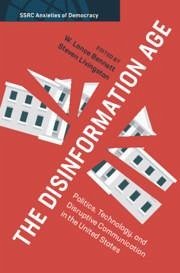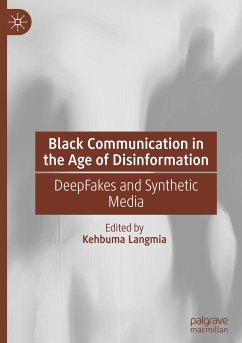
The Disinformation Age
Versandkostenfrei!
Versandfertig in über 4 Wochen
118,99 €
inkl. MwSt.
Weitere Ausgaben:

PAYBACK Punkte
59 °P sammeln!
Understanding the post-fact era requires going beyond foreign influence or the rise of social media. This examination of the origins and workings of the US disinformation system shows how political strategies and communication practices have undermined authoritative democratic institutions. This title is available as Open Access on Cambridge Core.














